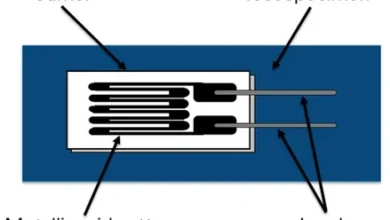XXC vs XMR 2023: The Ultimate Engine Showdown

In the evolving landscape of automotive engineering, the competition between engine technologies remains fierce. As we step into 2023, the spotlight falls on two frontrunners in this race: XXC and XMR engines. These powerhouses have been the subject of much debate among enthusiasts and experts alike. This article aims to dissect the differences, highlight the strengths, and ultimately guide you in choosing the right engine for your needs.
XXC Engine Overview
The XXC engine, renowned for its robust performance and cutting-edge technology, has carved a niche in the automotive world. Born from a legacy of innovation, the XXC engine’s design emphasizes high efficiency and superior power output. It integrates advanced materials and engineering techniques to deliver unmatched performance metrics that cater to both speed enthusiasts and environmental advocates.
XMR Engine Overview
On the other hand, the XMR engine stands as a testament to precision engineering and versatility. With a focus on delivering a balanced mix of power, efficiency, and durability, XMR engines have adapted over the years to meet the changing demands of consumers and regulations. The engine’s core features include a sophisticated fuel injection system, variable valve timing, and extensive use of lightweight materials to enhance its performance and fuel economy.
Design and Engineering
Comparing the design philosophies of XXC and XMR engines reveals a tale of two approaches. XXC opts for aggressive power delivery and high RPM capabilities, making it a favorite among performance enthusiasts. XMR, however, emphasizes reliability and all-round efficiency, appealing to those who prioritize longevity and fuel economy. Both engines showcase remarkable engineering solutions to common challenges, such as thermal management and vibration reduction, illustrating the pinnacle of modern engine design.
Performance Comparison
When it comes to performance, both engines boast impressive stats, but with distinct strengths. The XXC engine excels in raw power and acceleration, making it ideal for high-speed applications. Meanwhile, the XMR engine offers superior torque and smoother power delivery across a wider RPM range, suited for varied driving conditions from city roads to rugged terrains.
Technology Integration
Technology plays a pivotal role in the evolution of XXC and XMR engines. XXC engines incorporate state-of-the-art turbocharging techniques and advanced control systems to enhance their power output without compromising fuel efficiency. XMR engines, meanwhile, leverage hybrid technology and regenerative braking systems to maximize energy efficiency and reduce emissions, showcasing their commitment to sustainable engineering.
User Experiences with XXC
Users of XXC engines often praise their exhilarating performance and responsiveness. The engine’s ability to deliver instant power makes it a favorite for sports car enthusiasts and those seeking an adrenaline-pumping driving experience.
User Experiences with XMR
Conversely, XMR engine users highlight its reliability and smooth operation. Its balanced performance ensures comfort and efficiency, making it a preferred choice for daily drivers and long-distance travelers.
Cost Analysis
In terms of cost, both engines present a compelling case. The XXC engine, with its high-performance features, comes with a premium price tag but offers value through its exceptional power and potential for customization. The XMR engine, while initially more affordable, emphasizes low maintenance costs and excellent fuel economy, providing long-term savings for its users.
Environmental Impact
Both XXC and XMR engines have made significant strides in reducing their environmental footprint. XXC engines utilize advanced emission control technologies to meet stringent environmental standards, while XMR engines focus on efficiency and hybrid technologies to minimize fuel consumption and carbon emissions.
Market Trends and Predictions
The market for XXC and XMR engines is dynamic, with each responding to trends such as electrification, autonomous driving, and sustainability. Industry experts predict that XXC engines will continue to dominate in performance segments, while XMR engines will expand their presence in eco-friendly and autonomous vehicles.
Customization and Upgrade Potential
The XXC engine’s design lends itself well to customization, offering enthusiasts a plethora of upgrade options to boost performance further. The XMR engine, while more conservative in its stock form, also presents opportunities for enhancements, particularly in efficiency and environmental friendliness.
XXC vs XMR: Which Is Better for Racing?
For the racing circuit, the XXC engine’s high power output and tunability make it the preferred choice. Its ability to perform under extreme conditions gives it an edge in competitive racing.
Read also: Egerp Panipat: A Historical Gem’s Modern-Day Renaissance
XXC vs XMR: Best for Daily Driving?
For everyday use, the XMR engine’s reliability, efficiency, and smooth operation make it an ideal companion. Its versatility ensures a comfortable driving experience, regardless of the journey’s demands.
Expert Opinions
Experts in automotive engineering admire the XXC engine for its technological advancements and performance capabilities. In contrast, the XMR engine is lauded for its innovative approach to efficiency and sustainability, making it a benchmark for future engine designs.
FAQs
- How do XXC engines achieve their high power output? XXC engines utilize advanced turbocharging and direct injection technologies to enhance their power while maintaining efficiency.
- What makes XMR engines suitable for varied driving conditions? XMR engines are designed with a focus on torque delivery and fuel efficiency, ensuring optimal performance across a wide range of driving scenarios.
- Are there significant maintenance cost differences between XXC and XMR engines? While XXC engines may require more frequent maintenance due to their high-performance nature, XMR engines are designed for durability and long-term reliability, potentially lowering overall maintenance costs.
- Can XXC and XMR engines meet future emission standards? Both engines are equipped with modern emission control technologies, positioning them well to meet upcoming environmental regulations.
- What are the customization options available for XXC and XMR engines? XXC engines offer a wide range of performance upgrades, whereas XMR engines can be enhanced for better efficiency and environmental performance.
Conclusion
The XXC vs XMR engine showdown of 2023 highlights the remarkable advancements in automotive engineering, offering distinct choices for different needs and preferences. Whether you prioritize exhilarating performance or efficiency and reliability, both engines represent the pinnacle of modern engineering. As technology evolves, the competition between XXC and XMR will undoubtedly continue, driving further innovations and enhancing the driving experience for enthusiasts around the globe.




